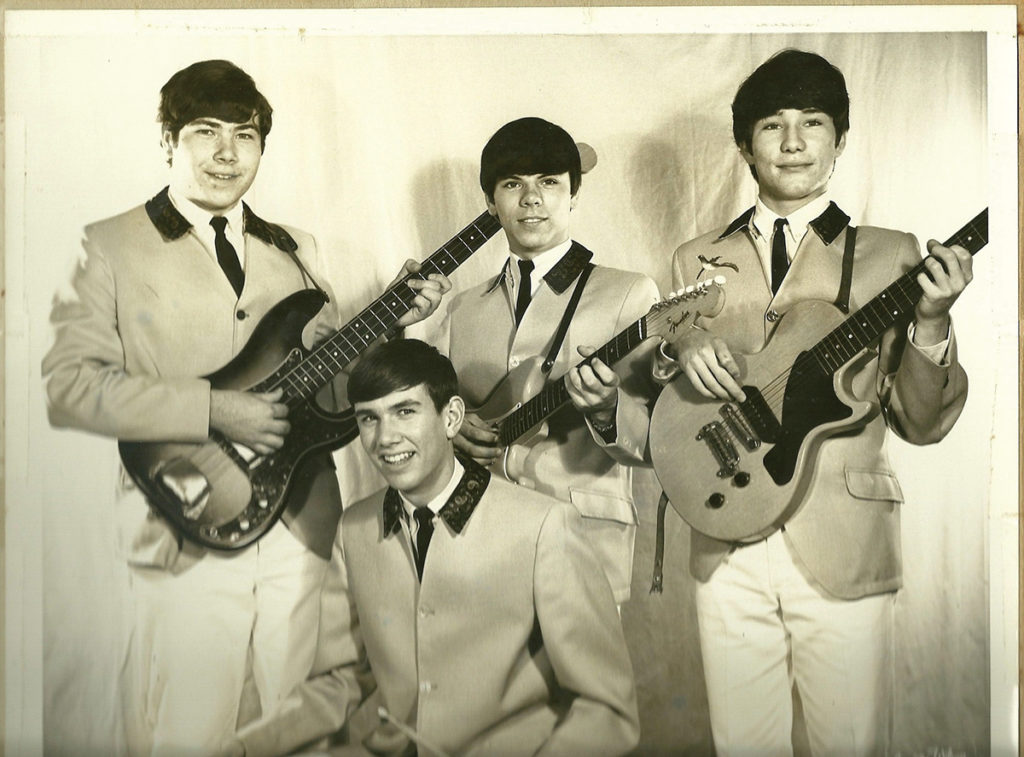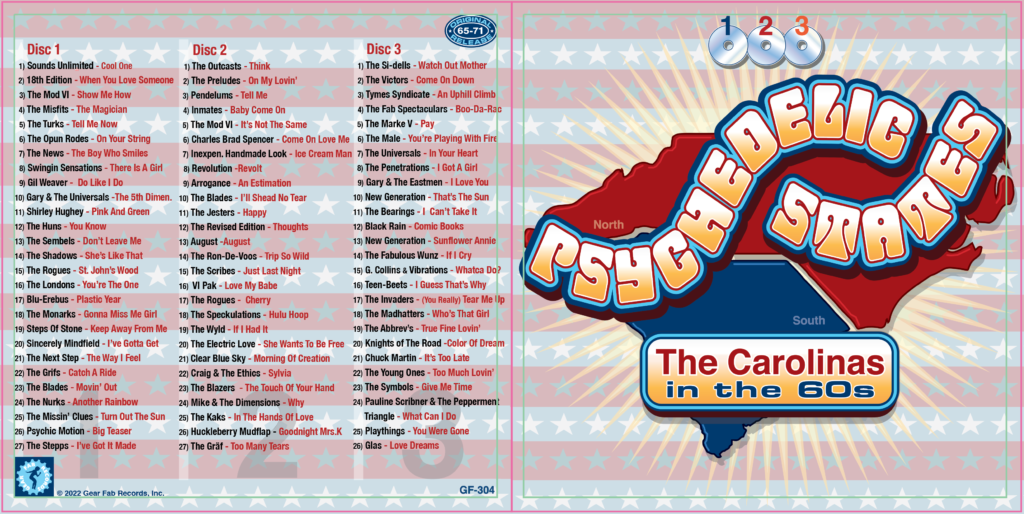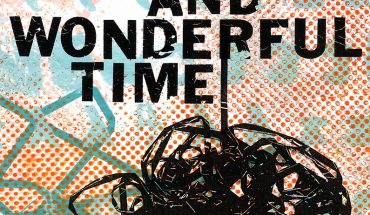A new CD collection, Psychedelic States: The Carolinas in the 60s, commemorates music from bands like The Fabulous Wunz, Rogues and Steps of Stone.
by David Menconi
The Fabulous Wunz were a young rock band from Asheville in the mid-1960s. It was an era when there was seemingly a band in every garage, and they had a pretty typical chronology: a teenage quartet that formed in Beatlemania’s wake, they were only together for a couple of years. They mostly played Beatles covers at local sock hops.
The Fabulous Wunz did, however, leave behind a physical artifact of their existence: the original song “If I Cry,” which they recorded and released as a single in 1966 on Pyramid Records. It had a B-side, “Please,” a song they finished writing in the back seat of the car while on their way to record at Arthur Smith Studios in Charlotte. “If I Cry” sold decently and even picked up some radio airplay, though not enough to make the charts. The group would dissolve a few years later, undone by marriage and college.
“I wish we’d had some goals beyond just meeting girls,” Fabulous Wunz singer/guitarist Jim Stover says now. “If any 16-year-old has actual goals, I envy ’em. I wish we’d had somebody record us live, although maybe it’s good we didn’t. Some people have recollections that reality might not match.”
Here in North Carolina and elsewhere, it’s the oldest rock ’n’ roll story there is. It’s also one of 80 songs and stories to be found on a new compilation, Psychedelic States: The Carolinas in the 60s (Gear Fab Records), which stands as the magnum opus of that era’s rock music in the Southeast.
While Psychedelic States covers both Carolinas, North and South, about two-thirds of its 80 songs are by North Carolina acts. The bands come from the length and breadth of the state with names like The Rogues, Inexpensive Handmade Look, Psychic Motion and Steps of Stone.
Perhaps fittingly, given the subject matter, the format of this gloriously impractical document is somewhere between archaic and obsolete. Not available as a download or on any streaming platforms due to the complexity of licensing, it’s only available on compact disc as a three-disc box set. But if you’ve still got a working CD player, it’s more than worth a listen.
A handful of acts here would go on to have actual careers, most notably Chapel Hill’s Arrogance. But the majority were never heard from again. Most of these bands were comprised of young men in that gap between old enough to drive but not drink (legally, at least), impassioned and musically primitive, less interested in notions of “art” than attracting the attention of the opposite sex.
What influences they had, they wore proudly. “Turn Out the Sun,” a 1969 single by The Missin’ Clues from Lumberton, sounds like a sped-up version of the Jefferson Airplane hit “Somebody to Love.” “Most of these bands didn’t have long careers,” says Ken Friedman of Chapel Hill, who served as one of the compilation’s curators. “There were a lot of meteors.
They’d get together, practice in their garage for a few weeks, play some sock hops, maybe win a Battle of the Bands, get to open for somebody big and make a record. Then there was Vietnam or college, and that was it. Most of them were doing it just to meet girls anyway. Sneering and bitching about girls can be a very, very deep well for teenage boys.”
A Colorado-based independent label, Gear Fab Records has been putting out similar state-based compilations in the Psychedelic States series for years, previously covering New York, Mississippi, Alabama and Texas, among others. The Carolinas in the 60s is Gear Fab’s first three-CD set. To make the selections, the label turned to a team of collectors and historians, including Friedman and Asheville DJ Vance Pollock.
Friedman is especially well-versed in this era of North Carolina rock history. A longtime collector, DJ and drummer in various oldies bands, Friedman earned his bona fides in the mid-1980s with Tobacco A-Go-Go, a series of compilations of 1960s-era Tar Heel rock bands that he assembled and released on his independent label, Blue Mold Records.
Those albums were part of a nationwide wave of similar garage-rock compilations going back to the granddaddy of them all, 1972’s Nuggets: Original Artyfacts From the First Psychedelic Era.
Compiled by Patti Smith guitarist Lenny Kaye, Nuggets was hugely influential on underground punk bands that began forming in the mid-1970s, New York’s legendary Ramones among them.
Meanwhile, this style of garage rock has remained popular among record collectors over the past half-century, the more obscure the better. Even the collectors themselves seem a little puzzled by the style’s enduring appeal — and also happy for reissues like Psychedelic States that keep it alive.
“What is it about this very rudimentary little genre that captivates so many collectors?” Friedman says. “You have to wonder how these bands even got into the studio, how many lawns they mowed to pay for it. Part of the charm is they wanted to sound angry but come off as innocent because they’re so young.
These were not ‘message songs’ by any stretch, but it reflects an era. It’s a fun time capsule, and evidence that you did not have to be a millionaire genius to put out a record you can dance to.”
This article originally appeared in the February 2023 issue of WALTER magazine.






